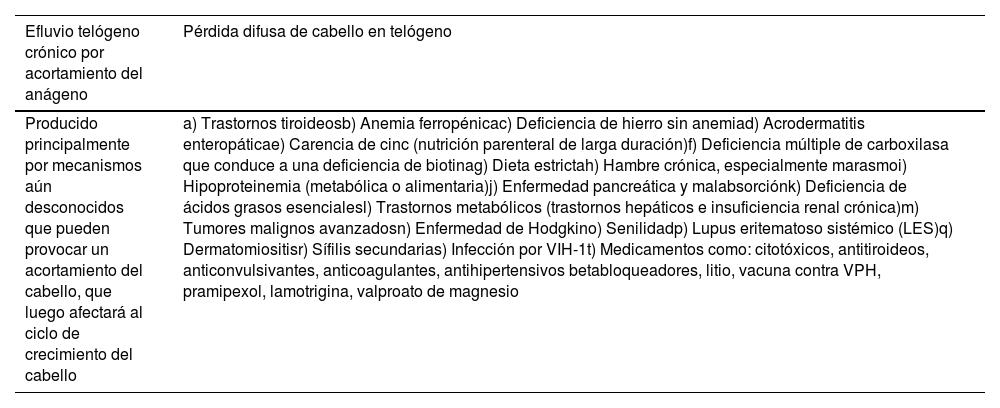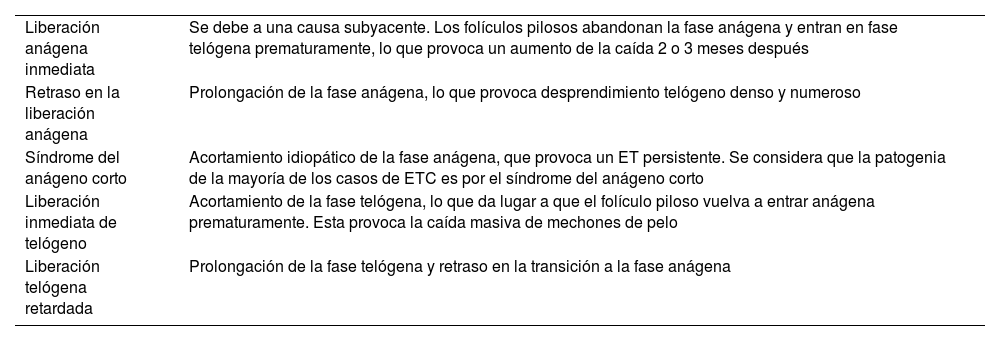El efluvio telógeno es una de las causas más frecuentes de alopecia. Es un trastorno del cuero cabelludo caracterizado por una caída excesiva del cabello que puede contribuir a la baja autoestima y morbilidades psiquiátricas asociadas con deficiente calidad de vida. Diversos factores, como fármacos, traumatismos, estrés emocional y fisiológico, pueden conducir al desarrollo de efluvio telógeno. El efluvio telógeno puede presentarse como una caída aguda o crónica del cabello con síntomas como la tricodinia. Las pruebas diagnósticas que pueden utilizarse incluyen pilotracción, dermatoscopia, prueba de lavado capilar, tricograma, fototricograma y la biopsia del cuero cabelludo. En el tratamiento del efluvio telógeno es esencial identificar y eliminar los factores causantes y utilizar fármacos como corticosteroides, minoxidil o tratamientos novedosos como CNPDA (cafeína, niacinamida, pantenol, dimeticona y un polímero de acrilato) y el agente multimolecular ALRV5XR. El objetivo del presente estudio es obtener una visión actualizada acerca de efluvio telógeno, su etiopatogenia, relación con otras enfermedades y tratamiento.
Telogen effluvium is one of the most common causes of alopecia. It is a scalp disorder characterized by excessive hair loss that can contribute to low self-esteem and psychiatric morbidities associated with poor quality of life. Various factors, such as drugs, trauma, emotional and physiological stress, can lead to the development of telogen effluvium. Telogen effluvium can present as acute or chronic hair loss with symptoms such as trichodynia. Diagnostic tests that may be used include piltraction, dermatoscopy, hair wash test, trichogram, phototrichogram and scalp biopsy. In the treatment of telogen effluvium, it is essential to identify and eliminate the causative factors and to use drugs such as corticosteroids, minoxidil or novel treatments such as CNPDA (caffeine, niacinamide, panthenol, dimethicone and an acrylate polymer) and the multimolecular agent ALRV5XR. The aim of the present study is to obtain an updated view on telogen effluvium, its etiopathogenesis, relationship with other pathologies and treatment.










